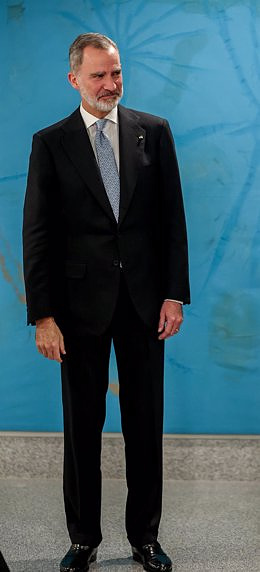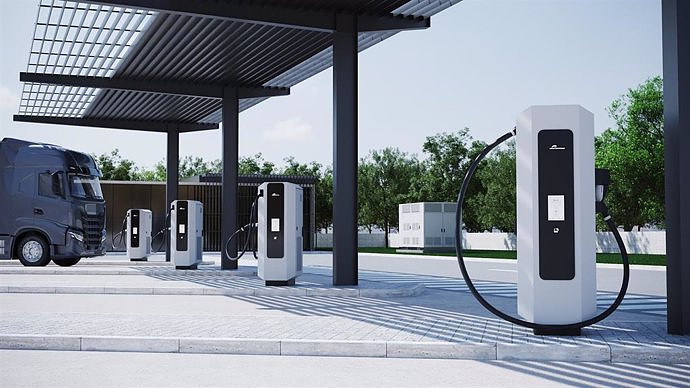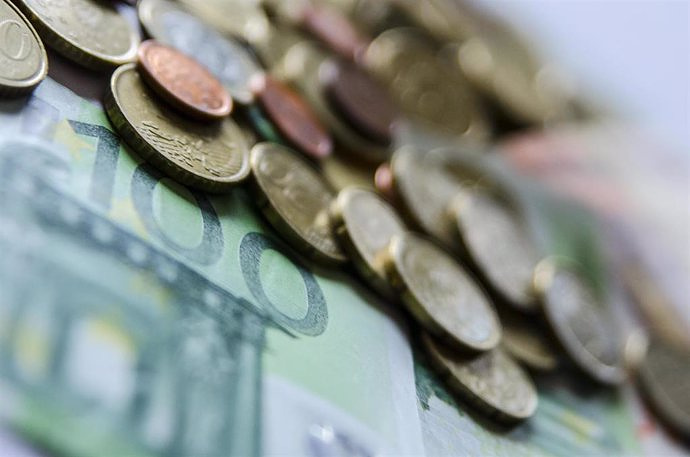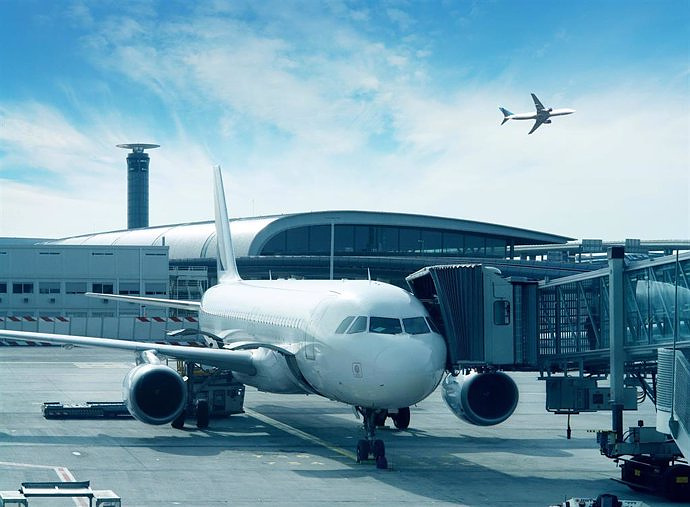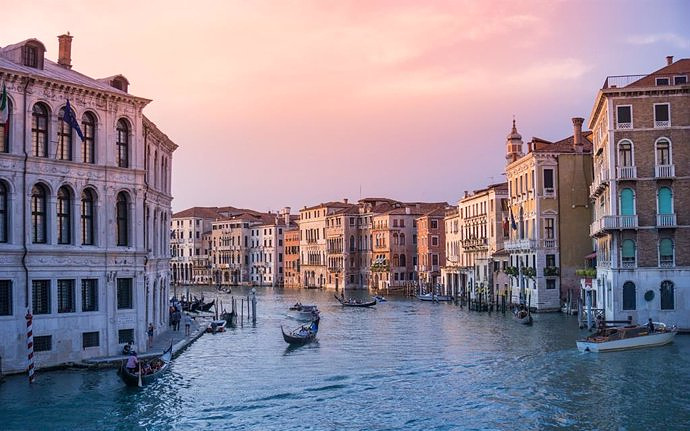Felipe VI defends that Spain is "a firm and solid ally" to face the current challenges
King Felipe VI has vindicated before the ambassadors accredited in Madrid the support that Spain has given Ukraine both at the military and humanitarian levels since the Russian invasion took place eleven months ago, in the midst of a debate on the eventual shipment of tankers combat 'Leopard'.
"Spain has shown its support for Ukraine from the beginning, in the bilateral and multilateral arena, both with the supply of military equipment and the necessary humanitarian material in the face of the indiscriminate Russian attacks on civil infrastructures", highlighted the monarch in his speech during the reception to the Diplomatic Corps accredited in Spain held at the Royal Palace.
In Don Felipe's opinion, "the response has been very outstanding, also demonstrating the unity of the partners and allies in the EU and NATO", whose summit in Madrid last June "launched an extraordinary message of cohesion".
The King also highlighted before the ambassadors, among whom was the one from Ukraine, that "the reaction of the international community has been firm and forceful" in the face of this "flagrant violation of the most fundamental norms and principles of International Law and the UN Charter.
"It is essential that the international community", Felipe VI told the ambassadors, "continue working towards a peaceful international order, in which justice and law prevail, and not the imposition by force of arms or by the threat of its use".
On the other hand, Don Felipe has stressed that "the great challenge" for Spain in 2023 will be the Presidency of the Council of the EU in the second semester, a responsibility that "assumes with determination, with experience and with a strong will to promote the European project".
On this point, he has defended that "we need a strong EU, which continues to respond to the challenges that arise and which simultaneously continues its institutional and legislative development to respond to the expectations, needs and interests of all Europeans".
The King has also reviewed the relationships and priorities by geographical areas. Regarding Ibero-America, he has defended that Spain should reinforce its role within the EU "as a spokesperson for the interests of Latin America and the Caribbean and the great opportunities offered by an even closer relationship on both sides of the Atlantic Ocean".
On this point, he has valued that "the language and culture in Spanish are a common heritage of a great community, whose duty is to disseminate them, promote their learning, arouse their appreciation and preserve them as elements of cultural transmission".
SUMMIT WITH MOROCCO
Likewise, he welcomed the strengthening of the trans-Atlantic relationship, extolling in particular the ties with the United States, as well as the "new stage" in the relationship with Morocco, a country with which a summit is scheduled for February 1 and 2 in Rabat.
"This meeting, which had not taken place since 2015, is part of the roadmap agreed in April last year and will deepen our extensive bilateral relations to work together on more solid foundations," he stressed.
As for Africa, he has acknowledged that Queen Letizia and he are looking forward with "special enthusiasm" to the trip they will make to Angola at the beginning of February, their first state visit to sub-Saharan Africa. This trip "symbolizes the involvement" of Spain with the countries of this continent, with which opportunities and challenges are shared, said Don Felipe, ensuring that "the commitment to their stability, security and development, as closely linked realities, is firm and unconditional".
With regard to Asia, he has defended the need to strengthen the relationship with these countries, specifically citing China, Japan and India, and has opted to seek both bilaterally and through the EU a "more open trade " with the Association of Southeast Asian Nations (ASEAN) to "achieve a greater implantation of our companies in that region and encourage mutual investment".
Felipe VI wanted to conclude his message by assuring all the ambassadors that in the face of the great current challenges that must be faced they will find in Spain "a firm and solid ally in the defense of the essential values of democracy, Human Rights and of respect for international law".
The event was attended by the ambassadors of just over a hundred countries and around twenty business managers or lower-level representatives, as well as 16 representatives of international organizations accredited in Spain.
ABSENCE OF RUSSIA AND VENEZUELA, PRESENCE OF ALGERIA
Among them have not been the new ambassadors of Russia and Venezuela, who, although they are already in Madrid, have not yet presented their credentials to the King, a necessary requirement to be able to officially represent their country in Spain. Nor has any representative of Nicaragua been present, a country with which a diplomatic crisis continues that led to the withdrawal of ambassadors.
Yes, the charge d'affaires of Algeria has attended, whose country proceeded to call its ambassador for consultations last March as a result of the letter sent by the President of the Government, Pedro Sánchez, to Mohamed VI in which he maintained that the Moroccan autonomy plan for the Sahara is "the most solid, credible and realistic basis" for resolving the conflict.
At the reception, which took place in the Throne Room and with just over 200 guests seated -some diplomats came with a companion- the President of the Government and the Minister of Foreign Affairs, José Manuel Albares, were also present , who has come in the gala uniform of diplomats. Other ambassadors have also attended with gala uniforms or traditional costumes from their respective countries.
In the act, which was followed by a cocktail, the Vatican nuncio, Bernardito Auza, took the floor as dean of the Diplomatic Corps and took the opportunity to encourage the Spanish to "continue caring for democracy, protecting coexistence and strengthening the institutions".

 Exploring Cardano: Inner Workings and Advantages of this Cryptocurrency
Exploring Cardano: Inner Workings and Advantages of this Cryptocurrency Seville.- Economy.- Innova.- STSA inaugurates its new painting and sealing hangar in San Pablo, for 18 million
Seville.- Economy.- Innova.- STSA inaugurates its new painting and sealing hangar in San Pablo, for 18 million Innova.- More than 300 volunteers join the Andalucía Compromiso Digital network in one month to facilitate access to ICT
Innova.- More than 300 volunteers join the Andalucía Compromiso Digital network in one month to facilitate access to ICT Innova.-AMP.- Ayesa acquires 51% of Sadiel, which will create new technological engineering products and expand markets
Innova.-AMP.- Ayesa acquires 51% of Sadiel, which will create new technological engineering products and expand markets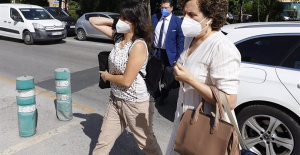 Juana Rivas's legal team manages to repeat the trial "that separated the brothers" in Italy
Juana Rivas's legal team manages to repeat the trial "that separated the brothers" in Italy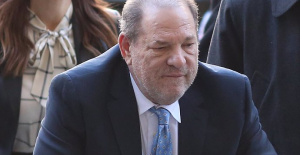 The New York Justice annuls Harvey Weinstein's conviction for sexual crimes and orders a new trial
The New York Justice annuls Harvey Weinstein's conviction for sexual crimes and orders a new trial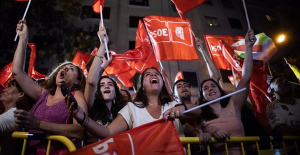 Socialist militants promote a large demonstration in support of Sánchez on Saturday in Ferraz
Socialist militants promote a large demonstration in support of Sánchez on Saturday in Ferraz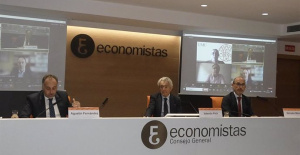 Families with average income allocate a third of their income to paying taxes, according to economists
Families with average income allocate a third of their income to paying taxes, according to economists How Blockchain in being used to shape the future
How Blockchain in being used to shape the future Not just BTC and ETH: Here Are Some More Interesting Coins Worth Focusing on
Not just BTC and ETH: Here Are Some More Interesting Coins Worth Focusing on Retrópolis brings the golden age of video games and computing to the UPV
Retrópolis brings the golden age of video games and computing to the UPV Looking for video games that value the neighborhoods of Valencia
Looking for video games that value the neighborhoods of Valencia UPV researchers improve the efficiency of air conditioning systems using a geothermal heat pump
UPV researchers improve the efficiency of air conditioning systems using a geothermal heat pump València is committed to citiverse and smart tourism to be "the reference technological hub of the Mediterranean"
València is committed to citiverse and smart tourism to be "the reference technological hub of the Mediterranean" A million people demonstrate in France against Macron's pension reform
A million people demonstrate in France against Macron's pension reform Russia launches several missiles against "critical infrastructure" in the city of Zaporizhia
Russia launches several missiles against "critical infrastructure" in the city of Zaporizhia A "procession" remembers the dead of the Calabria shipwreck as bodies continue to wash up on the shore
A "procession" remembers the dead of the Calabria shipwreck as bodies continue to wash up on the shore Prison sentences handed down for three prominent Hong Kong pro-democracy activists
Prison sentences handed down for three prominent Hong Kong pro-democracy activists ETH continues to leave trading platforms, Ethereum balance on exchanges lowest in 3 years
ETH continues to leave trading platforms, Ethereum balance on exchanges lowest in 3 years Investors invest $450 million in Consensys, Ethereum incubator now valued at $7 billion
Investors invest $450 million in Consensys, Ethereum incubator now valued at $7 billion Alchemy Integrates Ethereum L2 Product Starknet to Enhance Web3 Scalability at a Price 100x Lower Than L1 Fees
Alchemy Integrates Ethereum L2 Product Starknet to Enhance Web3 Scalability at a Price 100x Lower Than L1 Fees Mining Report: Bitcoin's Electricity Consumption Declines by 25% in Q1 2022
Mining Report: Bitcoin's Electricity Consumption Declines by 25% in Q1 2022 Oil-to-Bitcoin Mining Firm Crusoe Energy Systems Raised $505 Million
Oil-to-Bitcoin Mining Firm Crusoe Energy Systems Raised $505 Million Microbt reveals the latest Bitcoin mining rigs -- Machines produce up to 126 TH/s with custom 5nm chip design
Microbt reveals the latest Bitcoin mining rigs -- Machines produce up to 126 TH/s with custom 5nm chip design Bitcoin's Mining Difficulty Hits a Lifetime High, With More Than 90% of BTC Supply Issued
Bitcoin's Mining Difficulty Hits a Lifetime High, With More Than 90% of BTC Supply Issued The Biggest Movers are Near, EOS, and RUNE during Friday's Selloff
The Biggest Movers are Near, EOS, and RUNE during Friday's Selloff Global Markets Spooked by a Hawkish Fed and Covid, Stocks and Crypto Gain After Musk Buys Twitter
Global Markets Spooked by a Hawkish Fed and Covid, Stocks and Crypto Gain After Musk Buys Twitter Bitso to offset carbon emissions from the Trading Platform's ERC20, ETH, and BTC Transactions
Bitso to offset carbon emissions from the Trading Platform's ERC20, ETH, and BTC Transactions Draftkings Announces 2022 College Hoops NFT Selection for March Madness
Draftkings Announces 2022 College Hoops NFT Selection for March Madness